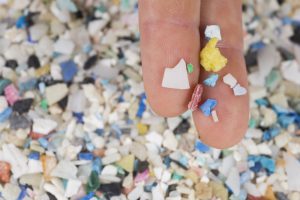Last week, Seattle made headlines for being the first city in the U.S. to ban disposable plastic straws. This news may have left you wondering, “What’s the big deal with plastic lately?” Read on to find out why Seattle and many individuals around the world are choosing to skip the straw.
The Plastic Problem
Unfortunately, plastic is polluting our oceans and killing marine wildlife. Last month, a whale in Thailand was found washed ashore with 80 plastic bags in its stomach. The Great Pacific Garbage Patch, a swirling patch of mostly plastic trash between Hawaii and California, covers an estimated surface area of 600,000 square miles, an area over twice the size of Texas. It contains over 80,000 tons of plastic.
Plastic breaks down into pieces, but never fully goes away. The man-made material does not biodegrade. Instead, it breaks into pieces from the sun’s UV rays, through a process called photodegredation. Larger plastic pieces continue to break down until the pieces become microplastics — a term used to describe plastic pieces smaller than 5 millimeters (about the size of a pencil eraser). These microplastics are consumed by aquatic animals, and have been found in the gut of fish, sea turtles, shellfish, and even in our drinking water.

Plastic pollution is not just a physical problem, but also a chemical one. As plastic breaks down, toxic chemicals are released. Also, other chemicals in the ocean can attach to the plastic pieces. When animals consume microplastics, they are ingesting these chemicals. This could have negative health consequences for not just the animals, but for us humans too. Thankfully, there are steps we can take to minimize these risks.
Shouldn’t we focus on reducing litter?
Yes! The next time you’re at the beach, take a minute to pick up any litter you see. Litter is a major issue, but it is not the only source of plastic pollution. Even properly disposed of plastics can find their way into the ocean.
What about recycling?
Recycling your plastic bottles, jars, and jugs can be one solution to reduce plastic pollution. But many plastic items we use every day are non-recyclable or recycled incorrectly. In most areas, plastic straws are not recyclable, and plastic bags cannot be recycled in your curbside container. Plastic bags are a major contamination problem at recycling centers. They clog machinery and can shut down an entire recycling plant for hours at a time. Instead, recycle plastic bags and films at your local grocery store.
Reduce or Reuse First
While proper recycling is one tool to fight the plastic problem, it’s the third “R” in the “Reduce, Reuse, Recycle” motto. The most effective way to fight plastic pollution is to limit the amount we each personally use. Even one small change can have a huge impact. Consider swapping out single-use water bottles, shopping bags and straws for reusable ones. Or skip the straw altogether. You might not even miss it.
For more information contact Krista Stump at UF/IFAS Extension Osceola County at stumpk@ufl.edu or visit https://sfyl.ifas.ufl.edu/osceola.
 0
0
